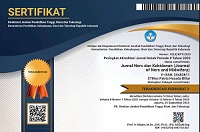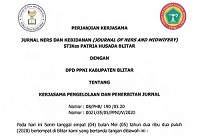Reviewer Guidelines
1. Peer Review Mode
JNK uses double-blind peer review, which means:
- The reviewer’s name is NOT disclosed to the author
- The author’s name is NOT disclosed to the reviewer
2. The Role of Reviewers
If we need your help with appraising a manuscript, we will send you an email and ask you to accept or decline the invitation through our submission system. We ask for reviewers’ assistance in ensuring that any studies published in JNK have been conducted properly, are scientifically credible and ethical, and have been reported in accordance with the appropriate guidelines (e.g., the CARE guidelines for case reports).
The Editorial Office is responsible for the final decision to accept or reject a manuscript, based on the reviewers' comments.
We welcome feedback from our reviewers. If you have any comments you wish to make relating to a manuscript you have reviewed or our decision on it or relating to our review process in general, we would be pleased to hear from you.
3. To Become a Reviewer
If you would like to become a reviewer for our journal, please send an email to the Editorial Office with a copy of your CV attached and an indication of your review interests.
The review could be conducted either via the OJS system.
4. Guidance for Peer Reviewers
- When you provide a review via our submission system, please declare any competing interests you may have in relation to the article. These could be of a personal, professional, or financial nature.
- Refer to our author rules before submitting your review. Reviews should be carried out fairly and objectively. Criticism should be impartial, not based solely on differences of opinion, and should attempt to assist the author in improving their paper. Our publication expects authors to follow reporting rules while drafting a paper and to provide a checklist for each guideline. We invite you to use the completed checklist contained in the review task to help with your evaluation. Please first ensure that the minimum information specified in the checklist is included in the report, and then utilize the reporting guidelines to aid in your evaluation of the article. If you discover that the checklist was wrongly completed or that the manuscript does not contain the information required by the checklist, you could explain what extra information should be reported as part of your review comments. A reporting guideline does not directly judge the quality of the technique employed in the study, but it does recommend the kind of questions to consider when organizing a study.
- Unpublished manuscripts are confidential. Only peer reviewers and editorial staff should be aware of the presence of a manuscript under review. Peer reviewers must maintain confidentiality regarding the manuscripts they review and may not disclose any information about a specific manuscript or its content to any third party without prior permission from the journal's editors, which may prevent the manuscript from being uploaded to software or other AI technologies where confidentiality cannot be guaranteed. Reviewers should inform editors if and how AI technology is being used to facilitate their review, and they should be aware that AI can produce authoritative-sounding output that may be wrong, incomplete, or prejudiced.
- If you wish to discuss an article with a colleague, please remind them of the confidentiality of the study and credit their contribution in your evaluation. Please invite your peers to register as reviewers.
- If you have concerns about a manuscript's publication ethics, such as plagiarism, please contact the Editorial Office in confidence. We are very grateful to all of the reviewers who have supported our journal so far.





